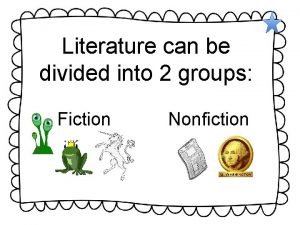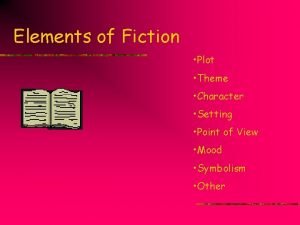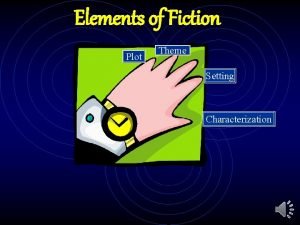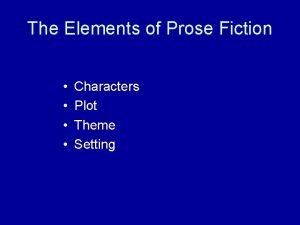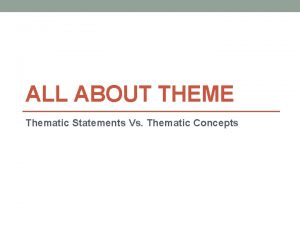Thematic Statements Themes Thematic Statements Theme in fiction








- Slides: 8

Thematic Statements

Themes & Thematic Statements • Theme: in fiction, a generalization about life stated or implied by the story • Themes are one word long (i. e. generosity, love, sacrifice, friendship, honesty, forgiveness, conflict) • A thematic statement: is a sentence about that chosen theme. A lesson that we can learn about that theme.

Tips on Thematic Statements: 1. Thematic statements should be complete sentences. (need subject & predicate) – Wrong: motherhood, loyalty, freedom, etc. – Right: Motherhood sometimes has more frustrations than rewards.

Tips on Thematic Statements: 2. Theme statements should be stated as a generalization about life that can apply to everyone. – Wrong: By philosophically examining her life, Sophie discovered she was mistaken about a number of her strongly held convictions. – Right: By philosophically examining our lives, we often discover we are mistaken about some of our most strongly held convictions.

Tips on Thematic Statements: 3. Be careful not to make a generalization larger than what is justified by the story. – Avoid terms like every, all, and always. – Terms like some, sometimes, may, often, and many are usually more accurate. – Do not use: I, me, you, my – Use these words: Our, us, we, people

Tips on Thematic Statements: 4. When stating a theme, it must: – Account for major details in the story (overall picture) – Not be contradicted by any detail in the story

Tips on Thematic Statements: 5. Avoid statements reducing themes to familiar sayings or clichés. – Wrong: Love is blind; you can’t judge a book by its cover – Right: Our initial feelings about others are often based on superficial judgments and usually change significantly once we come to know them better.

How to Identify a Theme ØAsk yourself what the main character learned in the story. ØGeneralize that lesson so it can apply to everyone. 1. Find themes (love, hatred, friendship, honesty, forgiveness, relationships, generosity, sacrifice. . ) 2. Write a sentence about that theme that can apply to majority.
 Contemporary realistic fiction vs historical fiction
Contemporary realistic fiction vs historical fiction Fiction and non fiction activities
Fiction and non fiction activities It is a genre of speculative fiction
It is a genre of speculative fiction Characteristics of nonfiction
Characteristics of nonfiction What's thematic statement
What's thematic statement Elements of fiction theme
Elements of fiction theme How did the setting characterization and plot
How did the setting characterization and plot The elements of prose fiction
The elements of prose fiction Elements of fiction theme
Elements of fiction theme

